Amon Agaba
ID:
|
The quality and safety standards of herbal medicine production and vending in greater Mbarara District
REFNo: HS720ES
General Objective:
To document the adherence and practice required to maintain the quality and safety of herbal medicine production and vending in Mbarara District.
Specific Objectives:
I.To document the adherence to standard herbal medicine production guidelines by herbal medicine producers and vendors in Mbarara District
II.To explore the enablers and barriers to adherence to the recommended guidelines that govern the production and vending of herbal medicine in Mbarara District.
|
Uganda |
2020-11-11 |
2023-11-11 |
Medical and Health Sciences |
|
Non-degree Award |

|
Josephine Nabukenya Kwagala
ID:
|
ASSESSING THE POTENTIAL FOR TRANSFORMING HEALTH IN UGANDA THROUGH AN ELECTRONIC HEALTH DATA SHARING PLATFORM AND DATA SCIENCE
REFNo: HS1005ES
General Objective:
To explore the readiness malaria and HIV as potential demonstrator conditions for an EHR data capturing and processing system infrastructure and analytical methods that could support Uganda’s Ministry of Health and related health institutions to provide responsive care and interventions based on real-time surveillance.
Specific Objectives:
Objective 1: To (a) develop a complete understanding of the routine care data currently captured and all surrounding dynamics including timing of capture by whom and how and what the current state of onward use is and (b) determine how these will influence data capture with electronic point of care capture systems.
Objective 2: To determine what technical, ethical/governance and workforce infrastructure are required for a timely model data capture system that addresses medical, public health and research needs of stakeholders.
Objective 3: In order to determine readiness, we will (a) model the cost of each proposal/ model system and determine on-going cost and potential cost recovery, including the cost of all other components (i.e., Buy-in, Timeliness, Capability) and determine what would be required to eliminate key barriers; and (b) map our data to EHR data capture and processing readiness frameworks.
Objective 4: To provide examples of cost effectiveness by determining how much additional malaria and/or HIV control would be required to offset the cost of the system over various time periods.
|
Uganda |
2020-11-11 |
2023-11-11 |
Medical and Health Sciences |
|
Non-degree Award |
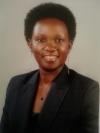
|
Moses Mulumba
ID: UNCST-2021-R013832
|
National Study on the impact of contentious issues and masculinities on the realization of Sexual and Reproductive Health and Rights in Uganda
REFNo: SS537ES
General Objective: To generate evidence for SRHR advocacy and programming in Uganda
Specific objectives are;
1. To document the journey of the Sexual and Reproductive Health and Rights movements in Uganda
2. To explore the relationship between masculinities and sexual reproductive health and rights
3. To examine the influence of contentious issues like abortion, and LGBTQI on the realization of SRHR
|
Uganda |
2020-11-10 |
2023-11-10 |
Social Science and Humanities |
|
Non-degree Award |

|
Robert Downing George
ID: UNCST-2020-R014615
|
Evaluation of the Clinical Performance of a Plastic Capillary Tube with the Determine HIV-1/2, Determine HIV Early Detect and Determine HBsAg 2 Rapid Tests
REFNo: HS895ES
The primary objective of this study is to evaluate the performance of a new plastic capillary tube for the transfer of a capillary finger-stick blood sample to 3 rapid test platforms; the Determine HIV-1/2 test platform, the Determine HIV Early Detect test platform and the Determine HBsAg 2 platform. The HIV and HBsAg results obtained using the new plastic capillary tubes to transfer capillary whole blood to the test devices will be evaluated against the HIV and HBsAg results obtained using a micropipette to transfer a whole blood venous sample from the EDTA Vacutainer tube to the same testing platforms, with discrepant result resolution where required. The new plastic capillary tubes have been verified in an internal performance study at the Abbott laboratories.
|
UK |
2020-11-10 |
2023-11-10 |
Medical and Health Sciences |
|
Non-degree Award |

|
Edward Bitarakwate
ID:
|
Evaluation of Patient and Program Outcomes Achieved through EGPAF-supported Integrated HIV and TB Prevention, Care, and Treatment Programs in Uganda
REFNo: HS930ES
Primary Objectives:
1.To determine patient and program outcomes for children, adolescents and adults receiving HIV and TB services in EGPAF supported facilities and through EGPAF supported programs.
Secondary Objectives:
1. To determine outcomes of HIV testing strategies targeted at identifying HIV positive children, adolescents, and adults in facilities and the community including the number and proportion identified as HIV-positive, linked to HIV services, and initiated on ART in EGPAF supported facilities and through EGPAF supported programs.
a. To determine individual, population, and program characteristics/factors associated with each outcome along the testing to treatment cascade.
2. To determine clinical and laboratory outcomes among HIV-positive children, adolescents and adults enrolled in HIV services such as morbidity (including coinfections), mortality, ART regimen, ART adherence, retention in care, viral suppression, and disease progression in EGPAF supported facilities and through EGPAF supported programs.
a. To determine individual, population, and program characteristics/factors associated with each outcome, including baseline clinical characteristics before initiating ART.
3. To determine the outcomes of HIV prevention activities (including PMTCT) among pregnant women, discordant couples, adolescents and other key and priority populations in facilities and the community including the number accessing prevention services by risk category, retention in services, and seroconversion rates.
a. To determine individual, population, and program characteristics/factors associated with the HIV prevention outcomes.
4. To determine clinical and laboratory outcomes among children, adolescents and adults accessing TB screening/diagnosis, prevention, and treatment services such as HIV/TB coinfection rates, initiation and adherence to IPT, initiation and adherence to TB treatment, retention in care, treatment outcomes for drug resistant TB, mortality.
a. To determine individual, population, and program characteristics/factors associated with each outcome.
|
Uganda |
2020-11-10 |
2023-11-10 |
Medical and Health Sciences |
|
Non-degree Award |
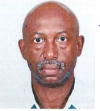
|
Harriet Mayanja-Kizza
ID: UNCST-2021-R013074
|
“Assessment of circulating proteins in Ugandan tuberculosis household contacts for latent TB infection biomarker development: Version 1.0 dated 14 Sept 2020â€
REFNo: HS958ES
Refine our protein signature to function in HIV-positive persons, incorporating cytokine and chemokine markers as needed.
2. Refine our protein signature to identify Mtb infection that has developed within a 6-month timeframe.
|
Uganda |
2020-11-10 |
2023-11-10 |
Medical and Health Sciences |
|
Non-degree Award |
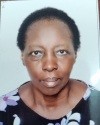
|
Esther Nanfuka Kalule
ID:
|
Livelihood Resilience During the COVID-19 Lockdown: Practices of Informal Sector Populations in the Urban and Peri-urban Settings of Kampala and Wakiso Districts
REFNo: SS619ES
The study will specifically:
• Examine the current livelihood practices and resources among urban informal sector workers in the context of restricted mobility and social distancing
• Examine the opportunities and challenges for vulnerable urban informal sector workers to negotiate and reconfigure livelihood sources including social networks and social capital for support in a lockdown situation
• Assess the most valued livelihood sources (assets, capabilities, activities) under the lockdown and preferred areas of allocating available resources among different categories of the informal urban population
• Examine the potential and perceived risks (including public health) of the livelihood activities undertaken during the COVID-19 lockdown
|
Uganda |
2020-11-10 |
2023-11-10 |
Social Science and Humanities |
|
Non-degree Award |
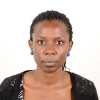
|
ARTHUR SEKIZIYIVU BRIAN
ID:
|
END-LINE EVALUATION OF AN HIV PREVENTION PROJECT IMPLEMENTED BY UGANDA PEOPLE’S DEFENSE FORCES AND PACE
REFNo: HS989ES
I. Measure changes in the knowledge, attitudes and practices among the military and AGYW to adopt and sustain positive behavior change.
II. Identify challenges, innovations, lessons, and success stories across the interventions
III. Identify the opportunities to integrate prevention interventions within (into) an HIV care program
|
Uganda |
2020-11-10 |
2023-11-10 |
Medical and Health Sciences |
|
Non-degree Award |
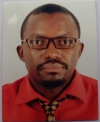
|
Hannington Odongo Jawoko
ID: UNCST-2024-R002457
|
The Relationship between Social Governance and Smallholder Farmer Socio-Economic Resilience: Moderating Effects of Pluralistic Agriculture Extension Service Provision in Northern Uganda
REFNo: A78ES
To investigate the moderating effects of perceptions of the quality of pluralistic agricultural extension services provision on social governance exhibited in participatory local government planning and budgeting process.
To examine the influence of social governance exhibited in participatory local government planning and budgeting process on the values and needs of smallholder farmers in northern Uganda.
To assess the impacts of perceptions of the quality of pluralistic agricultural extension services provision on socio-economic resilience of smallholder farmers in northern Uganda.
To examine the impacts of social governance exhibited in participatory local government planning and budgeting process on smallholder farmer’s socio-economic resilience in northern Uganda.
|
Uganda |
2020-11-09 |
2023-11-09 |
Agricultural Sciences |
|
Degree Award |
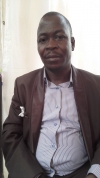
|
Anthony Mugeere Buyinza
ID:
|
THE IMPRINT OF EDUCATION: A LONGITUDINAL COHORT STUDY OF AFRICAN ALUMNI OF THE MASTERCARD FOUNDATION SCHOLARS PROGRAM
REFNo: SS543ES
(i) To provide evidence at multiple levels on the individual, structural, contextual and programmatic factors that mediate Scholars’ outcomes especially with regards to “returnâ€, “giving backâ€, “transformative and ethical leadershipâ€
(ii) To assess the imprint of education on the lives of individuals, communities and societies in contexts such as those on the African continent in which Mastercard Foundation (MF) provides scholarships.
(iii) To examine the links between socio-economic inclusion, education and development.
(iv) To understand what works and why, as well as what might be done to improve the MSP and maximise the impact of Scholars as agents in the social and economic transformation of the African continent (by considering their social networks, support and training received, the way in which institutions contributed to their success, and their employment and employment creation trajectories).
|
Uganda |
2020-11-09 |
2023-11-09 |
Social Science and Humanities |
|
Non-degree Award |
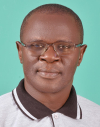
|
Augustine Ssevviri Kaddu Musisi
ID:
|
Using the Health Belief model to increase the level of knowledge, attitudes and practices of COVID-19 prevention measures in Wakiso district, Uganda
REFNo: HS883ES
1.0 Main Objective
To understand the level of adherence towards the COVID-19 guidelines and assess the knowledge and attitudes regarding COVID 19 in order design a behavioral change intervention that enhances knowledge and promotes compliance to the prescribed COVID-19 practices at the grassroots level in Wakiso district, Uganda
1.1 Specific Objectives
• To determine the level of knowledge about the prevention of COVID-19 among the people in Wakiso district
• To understand community attitudes towards the prevention of COVID-19 in Wakiso district
• To determine the level of adherence to COVID-19 prevention guidelines among community members in Wakiso District
• To design a behavioral change communication intervention for improving people’s knowledge, attitudes and level of adherence towards COVID-19 guidelines
|
Uganda |
2020-11-09 |
2023-11-09 |
Medical and Health Sciences |
|
Non-degree Award |

|
willy waninga
ID:
|
The use of ICT in the teaching of integrated science in Primary Teachers' Colleges in Uganda: A case of Four Primary Teachers' Colleges
REFNo: SS594ES
1. To find out ICT tools used by science tutors in teaching integrated science education
2. To find out how science tutors use technological content knowledge in planing integrated science education lessons.
3. To find out how integrated science education tutors integrate technological content knowledge in the pedagogy of science education.
|
Uganda |
2020-11-09 |
2023-11-09 |
Social Science and Humanities |
|
Degree Award |

|
Herbert Kayiga Kayiga
ID:
|
IMPACT OF COVID-19 PANDEMIC ON MATERNAL AND NEWBORN HEALTHCARE SERVICE DELIVERY IN PRIVATE AND PUBLIC FACILITIES IN UGANDA
REFNo: HS924ES
STUDY OBJECTIVE:
To determine the impact of COVID-9 pandemic on the provision of maternal and newborn services in Kampala, Uganda
SPECIFIC OBJECTIVES:
1. To determine the quality of maternal and newborn service provision in Kampala, Uganda before the COVID-19 pandemic.
2. To determine the quality of maternal and newborn service provision in Kampala, Uganda during the COVID-19 pandemic.
3. To seek understanding of the experiences of the health workers as they provide maternal and newborn services in Kampala, Uganda.
4. To seek understanding of the pregnant and breastfeeding mothers’ experience as they seek maternal and newborn services in Kampala, Uganda.
|
Uganda |
2020-11-09 |
2023-11-09 |
Medical and Health Sciences |
|
Non-degree Award |

|
Matthew Cotten Louis
ID:
|
Local sequencing of SARS-CoV-2 from Uganda COVID-19 cases
REFNo: HS936ES
To document the transmission dynamics of COVID-19 in Uganda using full viral genome sequencing
|
USA |
2020-11-09 |
2023-11-09 |
Medical and Health Sciences |
|
Non-degree Award |

|
Eve Namisango
ID: UNCST-2021-R014038
|
Title: Analysis of A Tool To Assess Psycho Social Spiritual Healing: Cognitive Interviewing
REFNo: HS957ES
1. To determine the face and content validity of the NIH-HEALS
2. To determine the comprehensiveness, comprehensibility and acceptability of the NIH HEALS in Uganda
|
Uganda |
2020-11-09 |
2023-11-09 |
Medical and Health Sciences |
|
Non-degree Award |
_8 copies .jpg)
|
Jane Kabami
ID: UNCST-2021-R012588
|
Leveraging the HIV platform for hypertension control in Uganda (INTEGRATED
HIV/HTN)
REFNo: HS979ES
1 To determine the effectiveness of an integrated HIV/HTN care model on HTN and dual
HIV/HTN control among adult patients in HIV clinics.
2 To assess the barriers and facilitators of the integrated HIV/HTN care model for HIV
patients at different levels.
3 To determine the cost, cost-effectiveness and incremental gain costs of the integrated
HIV/Hypertension care model approach
|
Uganda |
2020-11-09 |
2023-11-09 |
Medical and Health Sciences |
|
Non-degree Award |
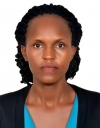
|
Grace Edwards
ID:
|
An exploration of the need for Nursing and Midwifery Leadership Capacity Building in Uganda
REFNo: HS562ES
The study is aimed at exploring the leadership training needs for nurses and midwives in Uganda, in order to develop recommendations for developing nursing and midwifery leaders in Uganda and draft a leadership training programme.
|
UK |
2020-11-04 |
2023-11-04 |
Medical and Health Sciences |
|
Non-degree Award |

|
Moses Adroma
ID: UNCST-2019-R000360
|
INCIDENCE & PREDICTORS OF ABNORMAL RENAL FUNCTION THREE MONTHS AFTER DELIVERY AMONG PREECLAMPSIA SURVIVORS AT MULAGO HOSPITAL
REFNo: HS341ES
To determine the incidence and predictors of abnormal renal function three months after delivery among preeclampsia survivors at Mulago Hospital.
|
Uganda |
2020-11-04 |
2023-11-04 |
Medical and Health Sciences |
|
Degree Award |

|
Kintu Mugagga
ID:
|
Comparative Assessment of Anatomical and Neuro-Cognitive Characteristics Between Vaginally And Caesarean Section Delivered Children of 1-2 years Age At Mbarara Regional Referral Hospital, South-Western Uganda
REFNo: HS397ES
i) To describe the differences in the head-size and body height between VD and CSD children at 1-2 years of age born at Mbarara Regional Referral Hospital.
ii)To describe the differences in neurocognitive characteristics between VD and CSD children at 1-2 years of age born atMbarara Regional Referral Hospital.
iii)To describe the perinatal and socio-demographic characteristics of the mothers to the VD and CSD childrenof 1-2 years of age delivered at Mbarara Regional Referral Hospital.
|
Uganda |
2020-11-04 |
2023-11-04 |
Medical and Health Sciences |
|
Non-degree Award |
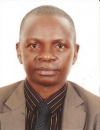
|
Nelson Sewankambo K
ID: UNCST-2020-R014578
|
Owning our future through community engagement: enhancing uptake of COVID-19 prevention and mitigation measuresâ€
REFNo: HS858ES
Specific Objectives
1. Ascertain the:
a) Prevailing attitudes and perceptions towards COVID-19 mitigation measures and community response and adaptation (behaviours, practices) to the “new social norms†imposed by the emergency response;
b) Short-term socioeconomic impact and community coping mechanisms
2. Develop and implement a community engagement intervention for enhancing uptake of the recommended COVID-19 public health and social mitigation measures.
3. Evaluate the effects of the intervention developed in 2 above on acceptance and uptake of the COVID-19 prevention and mitigation measures.
|
Uganda |
2020-11-04 |
2023-11-04 |
Medical and Health Sciences |
|
Non-degree Award |

|
| View |
|
Sort By: |
|
|
|
| |
|